DTP: ARIES
Author: Lucy Moore Fuller
Sean Thor Herron
DTP: C-CLEAR
Sarah Berk
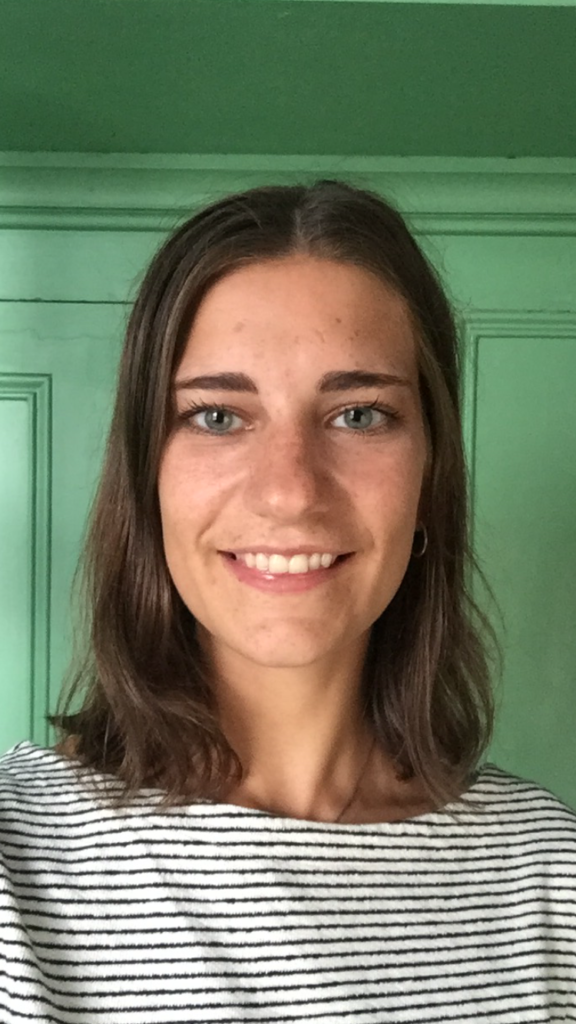
I am a 2nd year PhD student at the University of East Anglia in the Climate Research Unit (CRU). I have a BSc in Mathematics from the University of Exeter, where a module and project on the mathematics of climate change amplified my long-time interest in the area.
Research interests
My PhD research focuses on the Urban Heat Island effect, aiming to quantify this in cities across the world using satellite data and statistical methods. I am particularly interested in the impact of background climate and how this can be isolated from a number of contributing factors.
Sandy Avrutin
DTP: INSPIRE
Sam Walrond
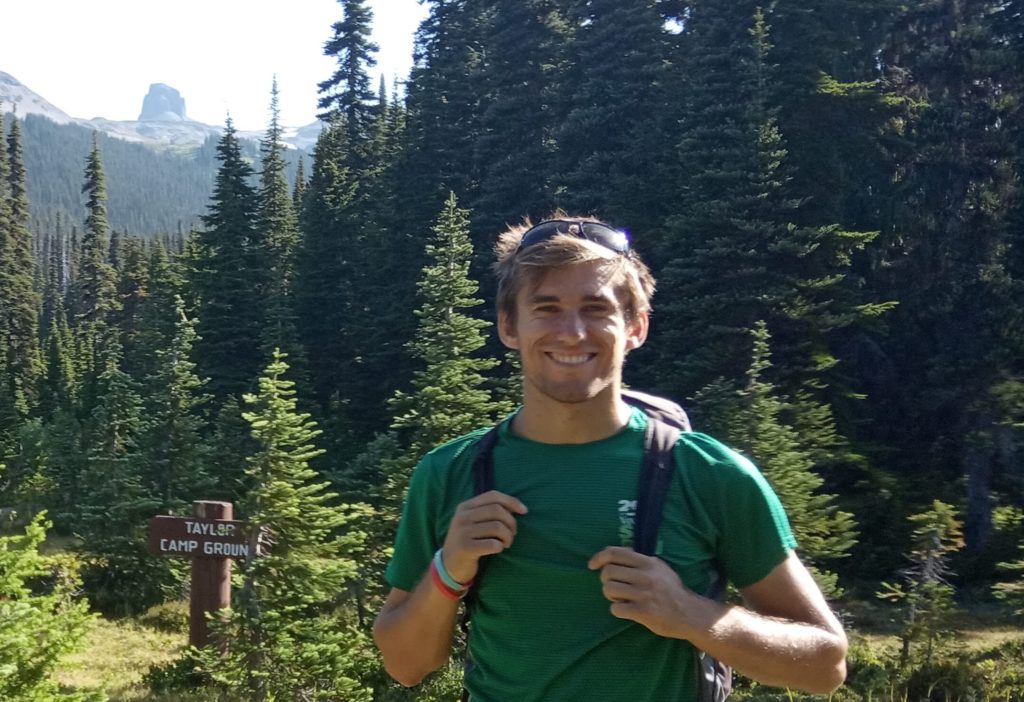
I am a first year PhD student based at UKCEH Lancaster, where I am investigating mineralogical controls on the stability of Soil Carbon. I have a background in environmental geoscience as an undergraduate and masters student, where I assisted in a whole ecosystem approach to investigate the effects of elevated CO2 on an mature deciduous forest, by studying nutrient cycling in the forest soil. I developed a strong interest in biogeochemical cycling and in particular, soil science, in which I find the interconnected and interdisciplinary nature of soils very interesting. This has led me to pursue my current PhD project.
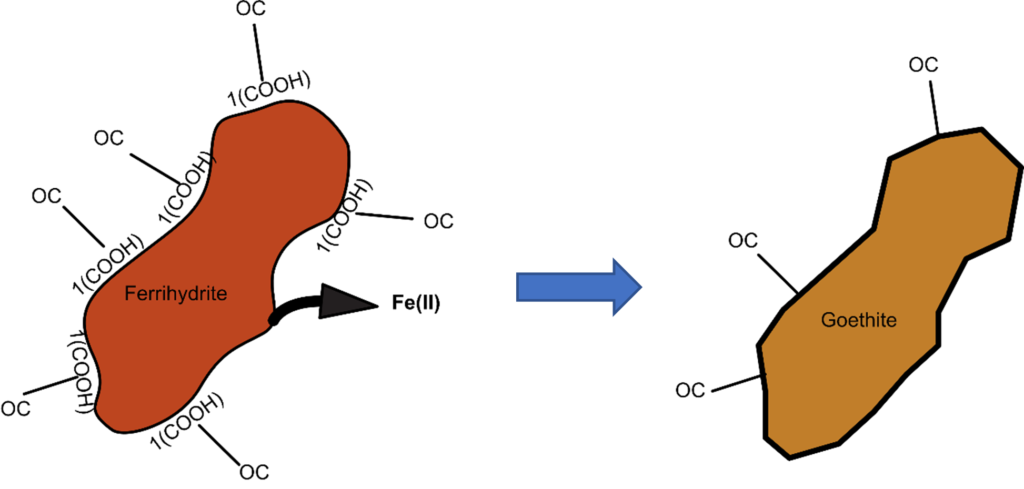
Figure 1- I am currently interested in the fate of organic carbon associated with soil Iron oxide minerals during redox fluctuations.
I am looking forward to taking part in this enviroSPRINT challenge, where I hope to interact with other students developing ideas on practical solutions and policy to enable the improvement of soil carbon stocks.
Envision DTP profile: https://wp.lancs.ac.uk/envision/2020/sam-walrond/
Ruth Carter
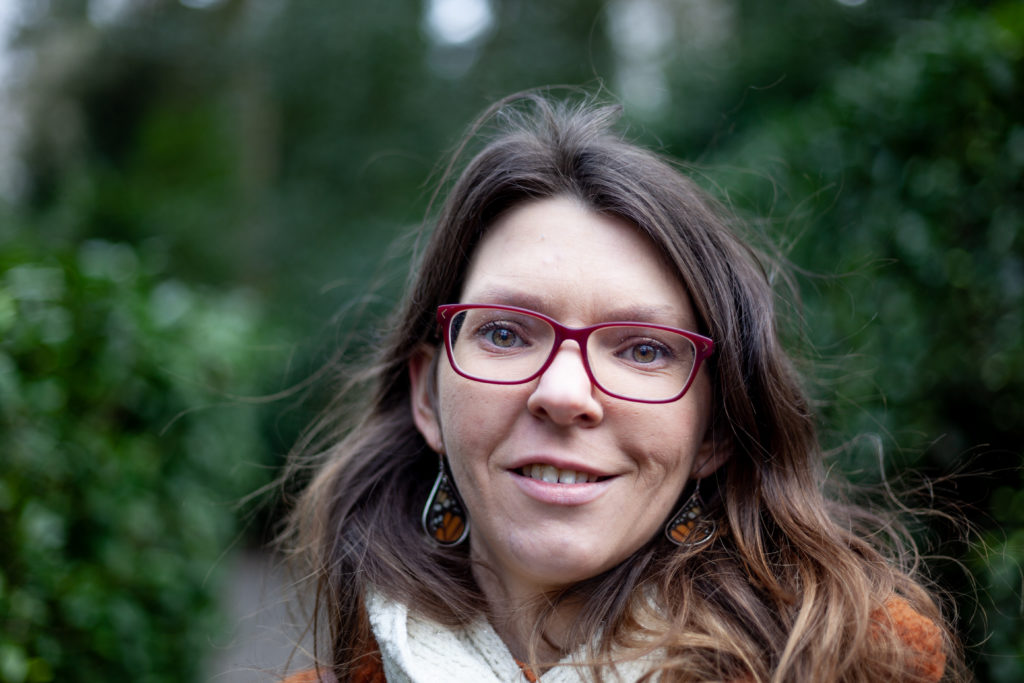
PhD: Complementary strategies for the sustainable management of an invasive pest in Africa
Current Research:
Throughout my PhD, I will investigate if the Fall Armyworm moth (Spodoptera frugiperda) competes with the African armyworm moth (Spodoptera exempta). Both moths threaten African food security as their caterpillars feed on many crops, including maize. S. frugiperda, native to the Americas, was identified in Africa in 2016. S. frugiperda is now distributed throughout Sub-Saharan Africa. I aim to study direct and indirect competition, including Interspecific predation, shared natural enemies, host plants, and induced plant defences. The results of this study will further develop the current knowledge of which biopesticides should be used in Kenya to control S. frugiperda and S. exempta. My PhD is in collaboration with Rothamsted Research.
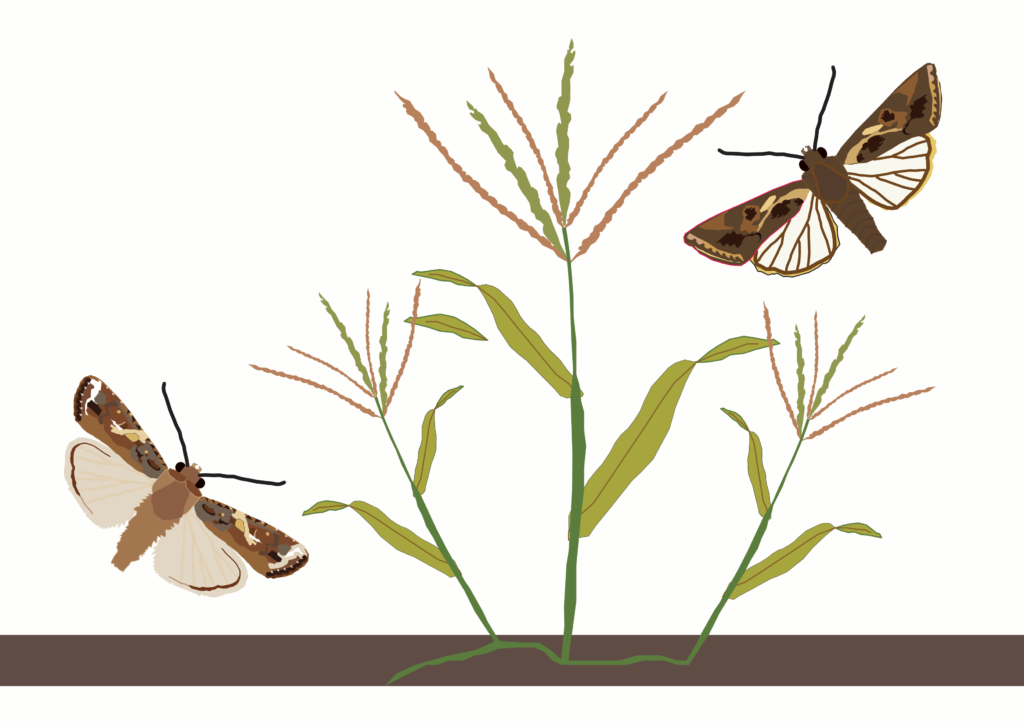
Background:
I completed my undergraduate degree in Biology at Royal Holloway University of London, where I predominantly focused on applied entomology. During my undergraduate dissertation, I produced a literature review titled ‘How insects use intracellular symbionts to overcome plant defenses and some of the restrictions.’ My undergraduate research project was titled ‘Can Mycorrhizae influence the infectivity of an entompathogen to Otiorhynchus sulcatus.’ Following that, I undertook a Master’s degree in Entomology at Harper Adams University. Master’s thesis focused on biological control of scale insects, which I presented at the International Congress of Entomology 2016.
My lifelong passion for insects has inspired me to take part in various work experiences over the years. This led me to my first job as a Research Assistant at The Pirbright Institute. For two and a half years, my team and I researched the Lepidoptera Diamond Back Moth.
You can find out more about my project in the animation video.
Links
Twitter: @Ruthentomology
Linked in: https://www.linkedin.com/in/ruth-carter-5081187a/
Rhiannon Jones
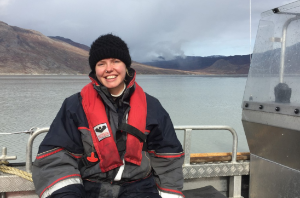
Postgraduate researcher in polar and marine biogeochemistry
University of Southampton (INSPIRE DTP)
Research project: Tracing iron cycling from the ice sheets to the polar oceans
Project: RaCE:TraX Radium in Changing Environments: A Novel Tracer of Iron Fluxes at Ocean Margins (PI Dr. Amber Annett)
Additional project: Policy researcher for Public Policy | Southampton enabling UK-Russian Arctic collaborations
UKPN committee member-at-large
Email: r.l.c.jones@soton.ac.uk
Twitter: @rhiofthesea
ORCiD ID
Research interests
- Marine biogeochemical cycling of macro- and micro-nutrients
- Isotope geochemistry
- Marine modelling
Rhiannon Rees
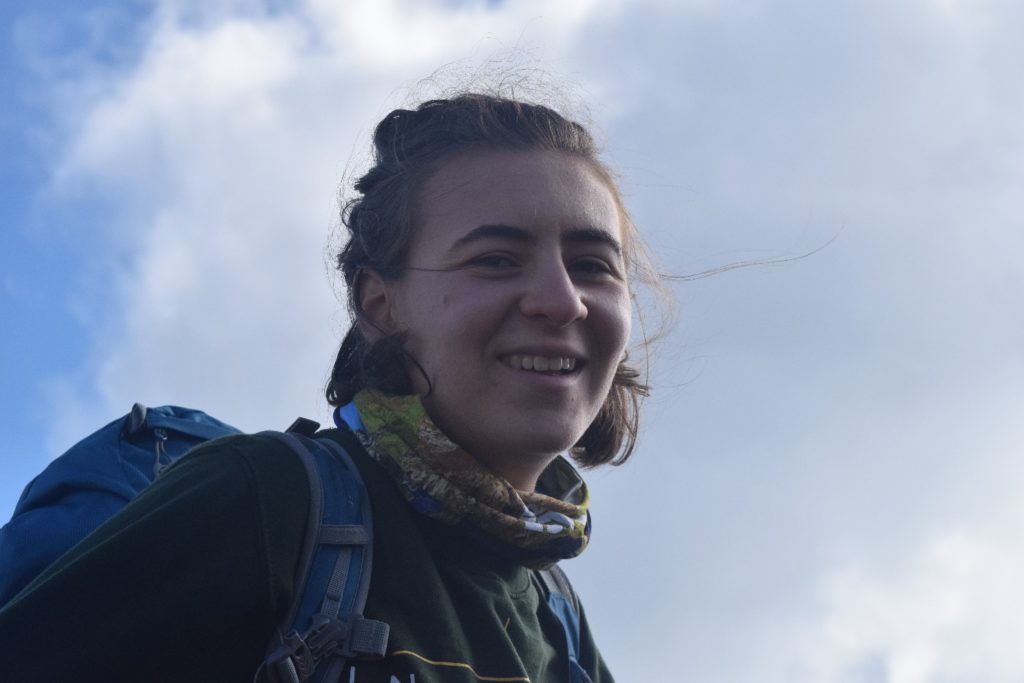
Rhiannon Rees is a postgraduate research student within Ocean and Earth Science, National Oceanography Centre Southampton at the University of Southampton.
2019-present: PhD Geology, University of Southampton.
PhD research project: Volcanic and geochemical evolution of the Ethiopian Rift in East Africa
2015-2019: MSci (Hons) Geology, University of Birmingham.
MSci thesis title: Manam: a characterisation of the history, eruptive processes, petrology, and hazards of one of Papua New Guinea’s most active volcanoes.
Regan Drennan
DTP: INSPIRE
Rebecca Robertson
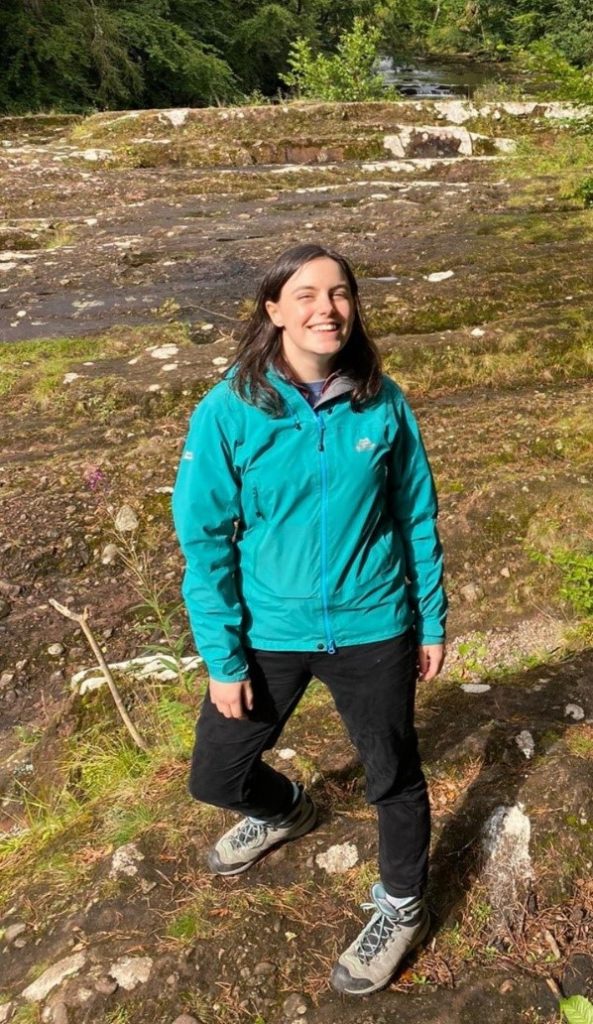
As a PhD student at Durham University, my work covers active tectonics, structural geology, geomechanics, and geochemistry. My project aims to refine understanding of reactions occurring on faults during earthquakes, with a focus on fluid-rock exchanges. Research questions include: how do coseismic reaction products effect fault strength and, are there isotopic signatures to mechanical processes? My work combines synthetic samples with natural fault gouge from the Alpine Fault, New Zealand.
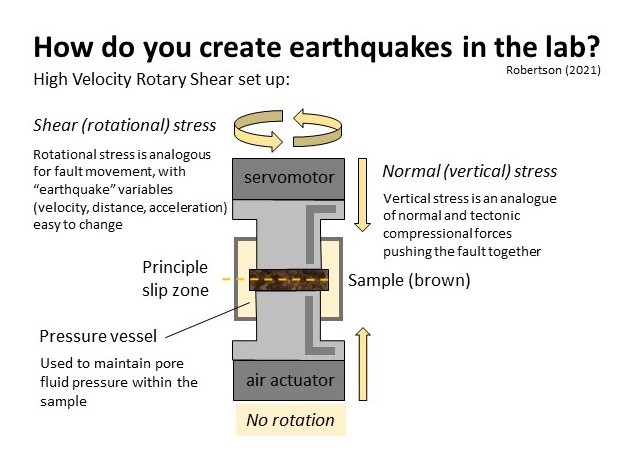
Resources
Understanding minerology of active faults is important to how they will produce earthquakes in the future. Here is a brief video from GNS Science describing drilling into the Alpine Fault core and why it’s important.
And here is another video from GNS Science about why the Alpine fault makes for an interesting case study
As an active member on the Tectonic Studies Group committee and Durham’s departmental structural geology research group “FaultTea” committee, I find being involved in the research community a priority.
Throughout the first year of study, I demonstrated on two undergraduate courses and I sit on the Undergraduate Education Committee Panel. Thoroughly enjoying teaching, I look to get involved in more education and outreach work.
I completed University of Aberdeen’s 5 year MGeol course in 2019, with projects covering topics in: remote aerial photogrammetry of seismic hazards; Raman spectroscopy on UHP-HT eclogites and blueschists from Syros, Greece; mapping complex structures of the Ord Window, Skye which marks the tail end of the Moine Thrust. I then worked with the Virtual Outcrop Group in Aberdeen over the course of 2020, developing their outcrop database and producing learning resources.
Links
Twitter: @RebVMRob
Email: Rebecca.V.Robertson@durham.ac.uk
LinkedIn: https://www.linkedin.com/in/bex-robertson-b7684b112/
TSG Committee profile page: http://tectonicstudiesgroup.org/postgraduate-representatives/
